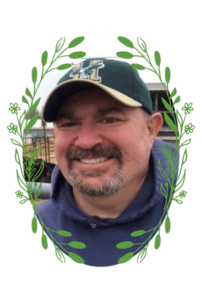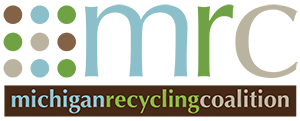Explore opportunities in compost and connect with Michigan organics professionals to level up organics recycling in Michigan! Join us in Lansing on February 27 to learn about key issues surrounding organics management in the state. This full day event brings together large and small compost operations and municipalities from around the state to move Michigan to a more circular economy. Travel stipends are available for representatives of Justice40 communities. Find details in the registration form.

KEYNOTE: Planning for Disaster Debris

Mark King, Maine Department of Environmental Protection
Much of the manageable debris following a disaster, whether that's wind, flooding, or fire, is organic. Learn about the value of productive disaster debris management and how to plan and prepare for quick action when disaster strikes.
Mark has worked as the Organics Management Specialist in the Department of Environmental Protection's Materials Management Division for the last 33 years. Mark provides ongoing technical assistance to new and existing commercial and agricultural compost facilities through compost facility design, operations assistance, and compost process troubleshooting.
When
Thursday, February 27, 2025
Where
Lansing Community College West
How
| 9:00 | Coffee & Registration |
| 9:30 | Welcome, Current Context |
| 9:50 | Keynote: Planning for Disaster Debris |
| 10:45 | Networking Break |
| 11:15 | Getting the Full Circle Benefits of Compost |
| 12:00 | Lunch |
| 1:00 | Panel: Best Practices in Compost Facility Management |
| 1:45 | Break |
| 2:15 | Contamination Reduction |
| 3:15 | Retail Perspective on Food Scrap Management |
| 3:35 | Panel: Organics-Related Policy Issues |

Participants Will
Connect with Compost Professionals Around the State
Learn from Industry Experts
Build Understanding Around the Value of Compost to Communities
Address Key Concerns Facing Organics Management
COFFEE & REGISTRATION 9:00 - 9:30 A.M.
WELCOME, CURRENT CONTEXT 9:30 - 9:50 A.M.
KEYNOTE 9:50 - 10:45 A.M.
Planning for Disaster Debris
Mark King, Maine Department of Environmental Protection
Much of the manageable debris following a disaster, whether that's wind, flooding, or fire, is organic. Learn about the value of productive disaster debris management and how to plan and prepare for quick action when disaster strikes.
Mark has worked as the Organics Management Specialist in the Department of Environmental Protection’s Materials Management Division for the last 33 years. Mark provides ongoing technical assistance to new and existing commercial and agricultural compost facilities through compost facility design, operations assistance, and compost process troubleshooting.
NETWORKING BREAK 10:45 - 11:10 A.M.
GUEST SPEAKER 11:10 A.M. - 12:00 P.M.
Getting the Full Circle Benefits of Compost
Fred Michel, Compost Researcher Department of Food, Agriculture and Biological Engineering
Food scraps are the largest component of organic material still landfilled in the US. Diverting them to composting not only reduces methane generated in landfills but also offers a productive way to recycle their nutrients and organic matter back into soil. Learn about the various approaches and benefits of recycling food scraps from backyard composting, urban farms, University and large-scale municipal systems in producing high nutrient composts that reduce or even eliminate chemical fertilizer needed to grow local food. Understand your role and the requirements of scaling up collection infrastructure, reducing contamination, securing the carbon amendments needed to control odors and moisture, managing product variability, and knowledge of and acceptance of composting by the government and the general public.
LUNCH 12:00 - 1:00 P.M.
PANEL: Best Practices in Compost Facility Management and Hauling 1:00 - 1:45 P.M.
Jenny McCullen My Green Michigan, Lindsey Walker Emmet County Recycling, Parker Jean Sanctuary Farms, James Tuthill Tuthill Farms
Join operators and haulers from a range of facilities and services from small operations in the heart of Detroit to large operations in rural Michigan. They’ll offer insights on tips and tricks, best practices, navigating challenges like odor control and navigating relationships with neighbors with the shared goal of converting Michigan yard waste and food scraps into a valuable compost to amend and heal our Michigan soils.
BREAK 1:45 - 2:15 P.M.
ACTIVITY: Contamination Reduction Messaging 2:15 - 3:15 P.M.
Alicia Goddard, Michigan Recycling Coalition
PRESENTATION: Retail Perspective on Food Scrap Management 3:15 - 3:35 P.M.
Mike Grey, Meijer Distribution Center Services
With about 124 stores in Michigan, Meijer has demonstrated their commitment to sustainability in a number of ways. The Michigan-based retailer is working to make its packaging recyclable, reusable, or compostable and encouraging suppliers to improve their packaging as well. Learn more about Meijer's commitment to and challenges with food waste reduction and composting that may help communities and composters alike better service the retail sector.
PANEL: Organics Policy Issues 3:35 - 4:30 P.M.
Lindsey Walker Emmet County Recycling, Nicole Chardoul Resource Recycling Solutions, Bill Whitley Spurt Industries, Frederick Michel Department of Food, Agriculture and Biological Engineering
The last panel of our day will focus on the larger policy issues that composters are facing. Fred Michel, Bill Whitley, Nicole Chardoul, and Lindsey Walker will share their perspectives on new and old State regulations, needed policy changes to reduce contamination from compostables, how composting fits into county materials management plans, and more.

